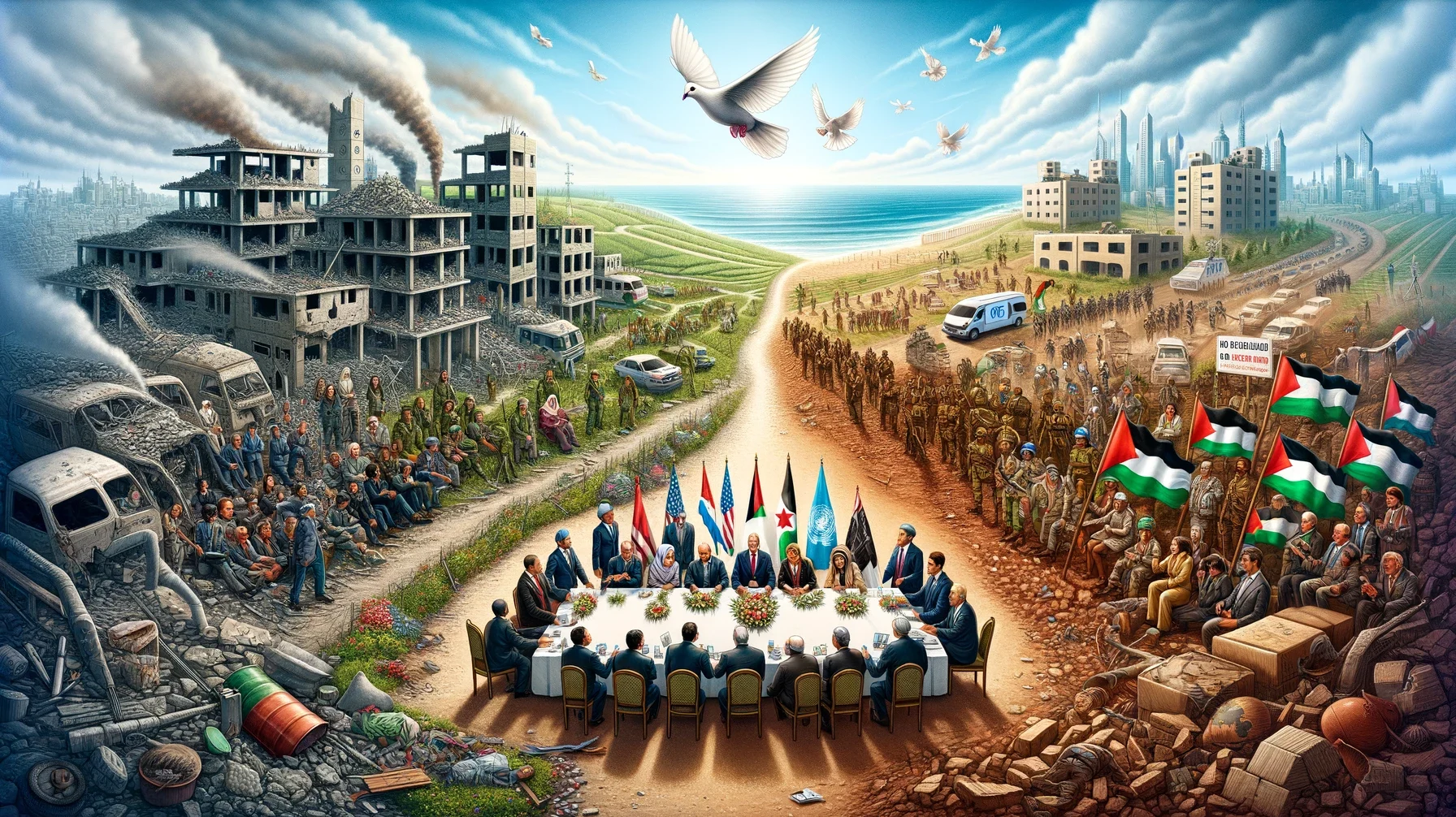The Gaza War: It’s Not Over Until It’s Over
Asharq Al-Awsat, London, January 5
As the war in Gaza enters its third month, it’s evident that our short attention span syndrome is at play. The war has been reduced to mere background noise, no longer dominating the front pages, but rather appearing in short snippets on television news bulletins. What’s particularly intriguing is the growing discussion surrounding the aftermath of this tragic conflict. This implicitly assumes that the ground fighting is nearing its end. The usual suspects in Middle East peacemaking efforts have already revived old ideas. US President Joe Biden, for example, seems to be echoing the words of Barack Obama as he talks about the two-state solution. The Conference of Islamic Cooperation has also formed a multinational committee to reach a “peace formula” agreeable to both sides. History has shown that those who end a war with a peace agreement are often not the same people who started the conflict. As for the United Nations, it has lost its former influence, with its Secretary-General seemingly lacking direction. Discussions are surfacing about the appointment of a special envoy for Gaza, with some suggesting Tony Blair, a familiar face in Middle East politics. In Israel, there is talk about the future of Gaza after Hamas. Some propose reviving Israeli settlements that were dismantled in 2006. However, these proponents fail to consider who would willingly settle in the rubble that Gaza has become. Moreover, the settlers would undoubtedly fear suffering the same fate as those in Ariel Sharon’s Gaza experiment. Another suggestion involves handing over what remains of Gaza to the Palestinian Authority led by Mahmoud Abbas. This would grant the Palestinian Authority the opportunity to free approximately 1,000 Fatah members and supporters imprisoned by Hamas. However, the question arises: can the Palestinian Authority govern Gaza effectively when it has failed to do so in the West Bank for over 25 years, despite relative peace prevailing there? There are also murmurs about returning Gaza to Egyptian control, an idea deemed foolish by many. There is a somewhat overly optimistic group already discussing the reconstruction of Gaza. These optimists overlook the fact that it was not economic hardship that turned Gaza into a living hell. Before October 7, Gaza had a lower unemployment rate than the West Bank, Jordan, and Egypt. In the first two quarters of 2023, Gaza’s economy grew by 4% while the West Bank’s remained stagnant. The per capita income in Gaza has risen thanks to generous donations from the UN Relief and Works Agency for Palestine Refugees, the European Union, Qatar, and the Palestinian Authority, alongside the income returned by around 100,000 Gazans working abroad, including 25,000 working in Israel, and tax revenues from the Israeli government. In fact, Gaza’s per capita income surpasses that of most Arab League member states, and it boasts 36 hospitals with 1,657 beds; more than Egypt and Jordan. Thanks to international aid and donations from wealthy Palestinians worldwide, Gaza outranks the Islamic Republic of Iran in terms of the percentage of GDP allocated to health and education. Additionally, Hamas doesn’t need to finance its army and tunnels through taxes as Iran covers a significant portion of the cost. Curiously, the traditional causes of war, such as territorial disputes and access to resources, do not apply to Gaza. In normal conflicts, the warring parties seek tangible gains that can be accepted when the cost-benefit scales tip in favor of peace. However, the war in Gaza is far from ordinary. Hamas desires something Israel cannot provide—the existence of “Palestine from the river to the sea.” Conversely, Israel seeks Hamas’s acceptance of control over Gaza while disregarding the notion of wiping Israel off the map. Should Hamas agree to such a deal, it would become another version of Fatah. Thus, attempting to nullify these imagined causes is a futile exercise. Nevertheless, it may be possible to set aside these considerations and focus instead on curtailing the ongoing killing spree. The Islamic Republic of Iran, on the other hand, prefers the killing to persist, albeit in the form of a “low-intensity war.” For instance, last week, an Iranian analyst wrote on the new Fars News website that Tehran does not expect Hamas to emerge victorious but wants it to continue fighting for as long as possible to convince more Israelis that it’s the best option. Tehran also plans to deploy more of its regional assets, including Lebanese Hizbullah, the Yemeni Houthis, and various groups in Iraq and Syria, albeit in small doses to avoid direct involvement. The idea is that the longer the fighting continues, the more damage it inflicts on Israel’s image both domestically and globally. In essence, if victory cannot be achieved on the battlefield, winning the propaganda war becomes crucial. Hamas, on the other hand, is sending the message that part of its leadership is willing to remain in this deadly game until every last rocket and missile, supplied by Tehran, is launched. Now, the question is: will Israel adjust its strategy to adapt to a prolonged, low-intensity war? —Amir Taheri (translated by Asaf Zilberfarb)


